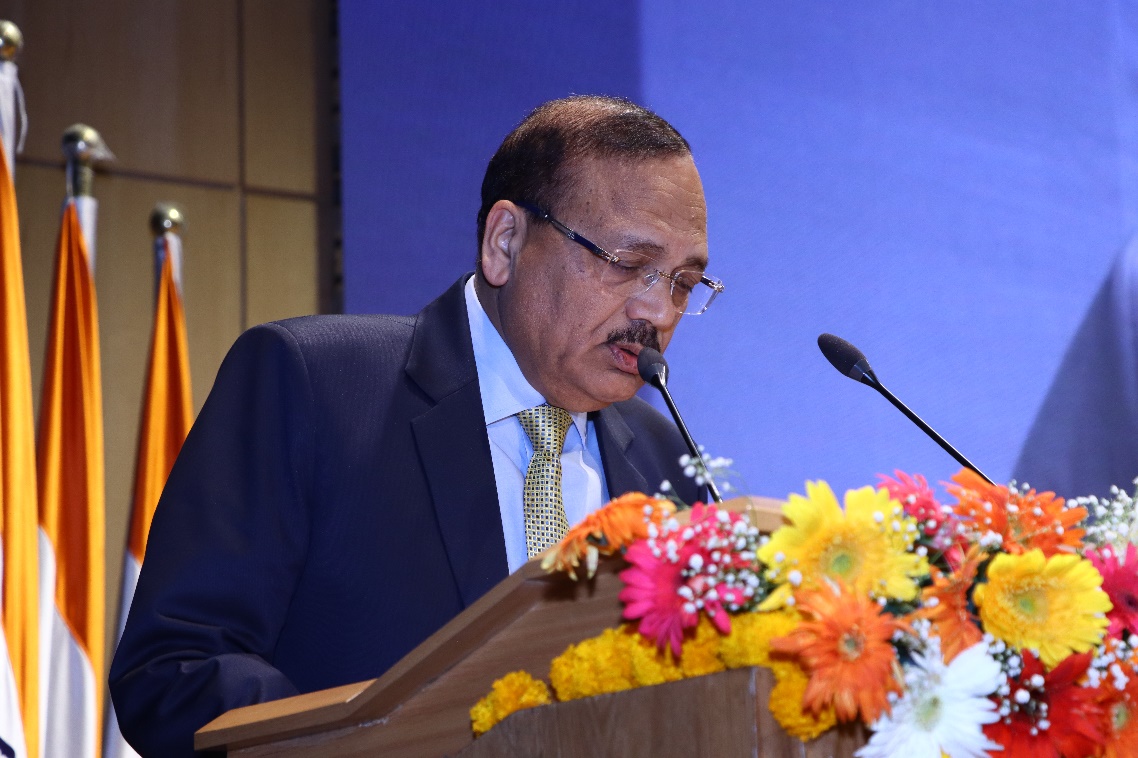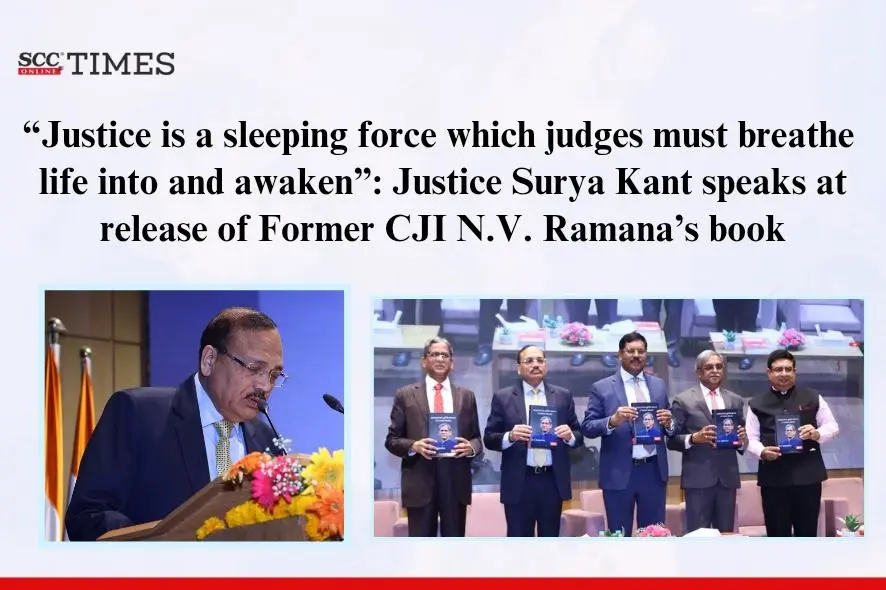Celebrating the release of Former CJI Justice N.V. Ramana’s book titled ‘Narratives off the Bench: A Judge Speaks’, EBC organised a book release event at the Delhi High Court. In this insightful work, Justice Ramana emphasises the crucial need to bridge the disconnect between the common man and the judiciary, with the aim to empower justice seekers, enlightening them about their Constitutional rights and duties, India’s rich democratic values, and the sanctity of our institutions.
The event was also graced by Justice B.R. Gavai, Chief Justice of India (Designate), as the chief guest and Justice Vikram Nath, Supreme Court of India, as the guest of honour. The event was well-attended, drawing over 400 participants, including judges from the Supreme Court, Delhi High Court, Telangana High Court, Andhra Pradesh High Court, Allahabad High Court, and Madhya Pradesh High Court and other prominent legal luminaries.

Speaking at the event Justice Surya Kant expressed pride and deep respect on the launch of the book, which was a profound and timely collection of speeches by Justice Ramana. He remarked, “This compilation captures the mind of a jurist and the conscience of a citizen deeply committed to serving society.”
He added that during his tenure as the CJI, Justice Ramana often reflected on the delicate balance between judicial detachment and societal engagement. Justice Ramana consistently emphasised in his addresses that while a judge must uphold strict impartiality and restraint within the courtroom, he must not lose touch with the realities, struggles, and aspirations of the people outside it.
Regarding the book, Justice Kant remarked that he did not see it as a mere compilation of addresses, but rather as a tribute to the enduring dialogue between the Judiciary and the society it serves. He stated, “This collection of speeches champions a principle of utmost importance, namely, the need for judges to step forward and beyond the confines of the courtroom and engage thoughtfully and meaningfully with the public.”
While addressing the relationship of the judiciary with the public, Justice Kant commented that when judges share their insights and opinions in public forums, they perform a vital democratic function of actively engaging with the public on broader concerns and pressing issues that may not have reached the Courts. In these moments, the public sees them not only as arbiters of disputes but as the true custodians of our Constitution. In his opinion, this public engagement by judges reinforces judicial accountability.
“Justice is not locked away in legal commentaries or textbooks; it is a sleeping force which judges must breathe life into and awaken.”
Underscoring the challenges confronting our judicial system, such as case backlogs, infrastructural deficiencies, barriers in access to justice, etc., Justice Kant stated that they were not abstract policy concerns but real problems that impacted the daily lives of millions. Thus, when judges speak candidly about these systemic hurdles, their voices lend weight to calls for reform and inspire action and innovation, not only within the legal community but across the broader fabric of society. In this regard, he illustrated how the legal system digitised itself with online case records, virtual appearances, and e-filings to increase public access to justice.
He remarked that the old saying that judges speak only through their judgments was perhaps only partially true in today’s world, since now the judiciary faces rising expectations to go above and beyond adjudication and actively uphold constitutional values. At the same time, he added, the judiciary must cultivate the ability to break down the invisible fortresses built by those who consider themselves out of reach of justice. He opined that this relentless pursuit of the ‘purest’ form of justice was the judiciary’s solemn duty, and it deserves not criticism, but applause for the servants of justice.
Underlining the role of the judiciary as social engineers, Justice Kant remarked that when someone in a position of grave responsibility speaks about ideals and principles meant to elevate society, they influence public perception. When a judge introduces such an ideal or a philosophy to the public, its journey is cyclical. It first emerges through public engagement, travels through the corridors of society, and returns to the courtroom, where it also acts as a source of inspiration to the judges in the performance of their duties.
Further explaining how judges become mentors and inspiration for the legal fraternity, Justice Kant commented that the role of judges is to nurture a society that is more embracing, empathetic, and attuned to the noble ideals of justice and equity. The speeches and writings of judges become enduring guides for those who aspire to serve the law with integrity, courage, and dedication. He stated, “When a judge’s voice is raised with care, humility, and purpose, it can illuminate the path toward a more just, humane, and equitable society.”
“In a period where the Judiciary is frequently expected to transcend traditional boundaries, such reflections offer incisive legal thought and lived experiences about the role of judges as thoughtful, measured public figures.”
In conclusion, he hoped that this book would act as a catalyst for deeper dialogue and meaningful reform, and inspire many more voices of courage, wisdom, and grace to rise with the same conviction and purpose.
“This book is a clarion call for a judiciary that listens, learns, and leads with compassion and courage.”


